Overview
Beginning in 2014, the Riverside University Health System (RUHS) collaborated with IHQC to create two learning communities over a four-year span across their integrated delivery system, creating a forum for staff from their primary care clinics and the hospital to gain exposure to and apply quality and process improvement tools.
More than 15 multi-disciplinary teams came together to build skills, implement strategic improvement projects, and to expand the systems’ internal improvement goals and transformation efforts. Project topics ranged from optimizing medication reconciliation forms and workflows, to improving cancer screening rates, to improving internal processes, to decreasing patient wait times.
Strong advances were observed across multiple measures, and the work of the teams ultimately brought in $15.8 million to the hospital system through the Public Hospital Redesign and Incentives in Medi-Cal (PRIME) program, a five-year pay-for-performance initiative linked to California’s Medi-Cal 2020 Waiver.
Building Capacity for Quality
Starting in 2014, IHQC’s first engagement with RUHS was an effort to bring IHQC’s Fundamentals of QI program to the RUHS teams. Working with RUHS leadership to tailor the program for their staff, IHQC designed a program that included readiness assessments, three workshops, monthly webinars, and direct coaching supports.
Over the course of the nine-month program, 18 departments/sites spread across Riverside County actively participated in the program, designing and implementing 6-month QI projects that addressed clinic and patient priorities like cancer screenings, operational efficiencies and cycle times, medication reconciliation, patient show-rates and employee satisfaction.
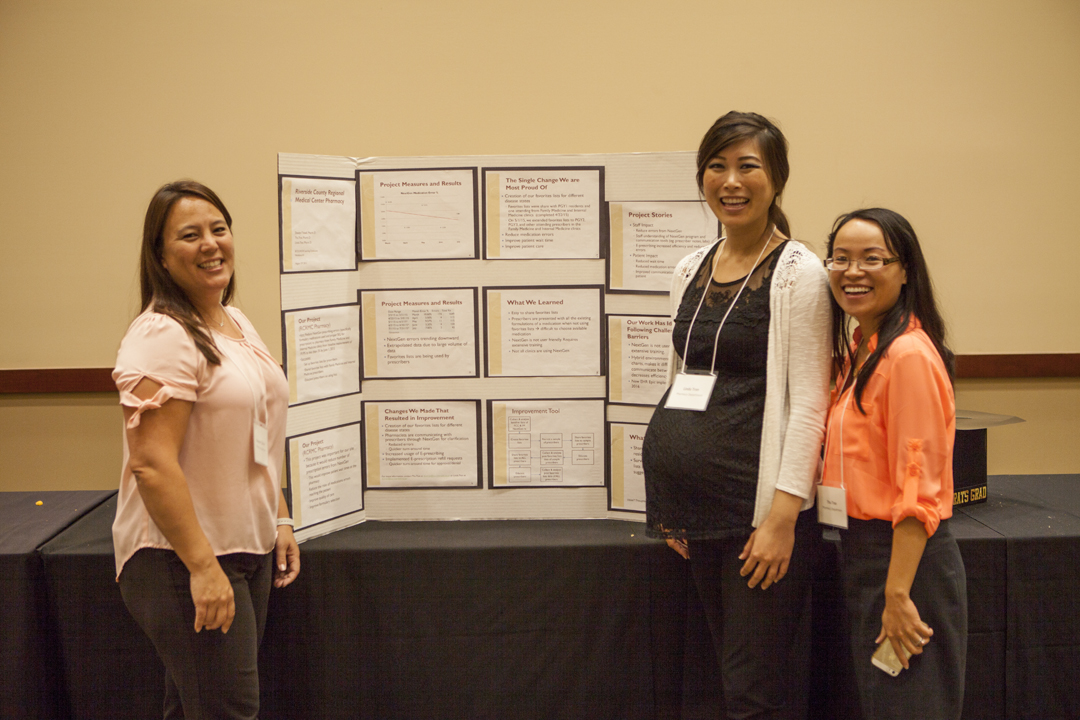
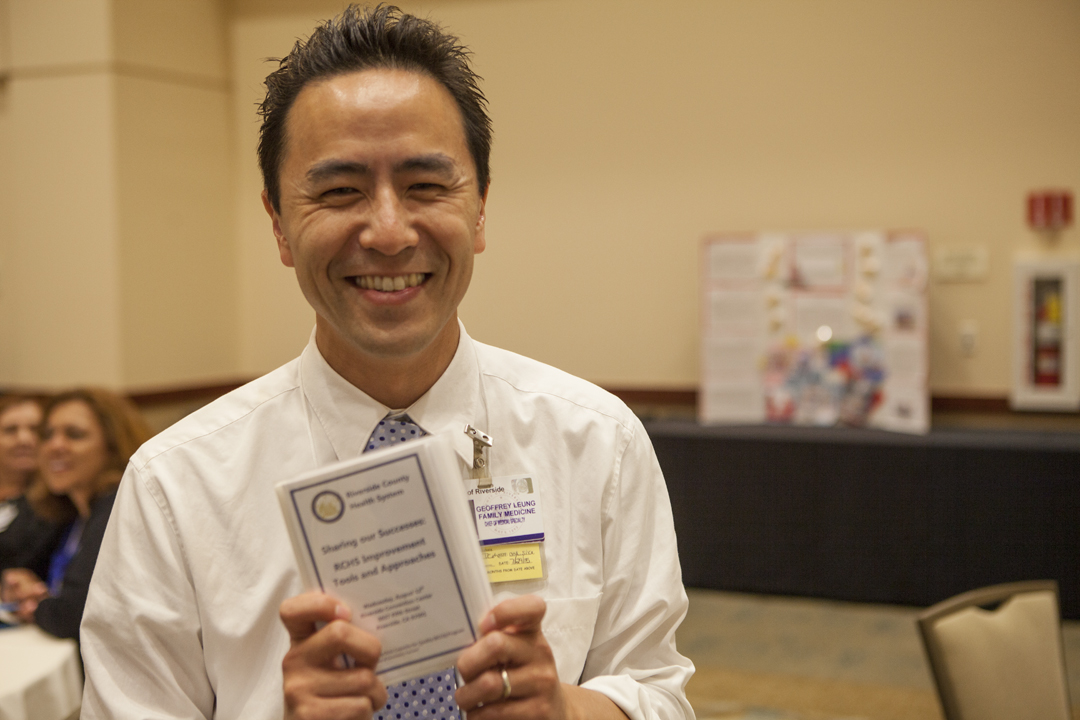
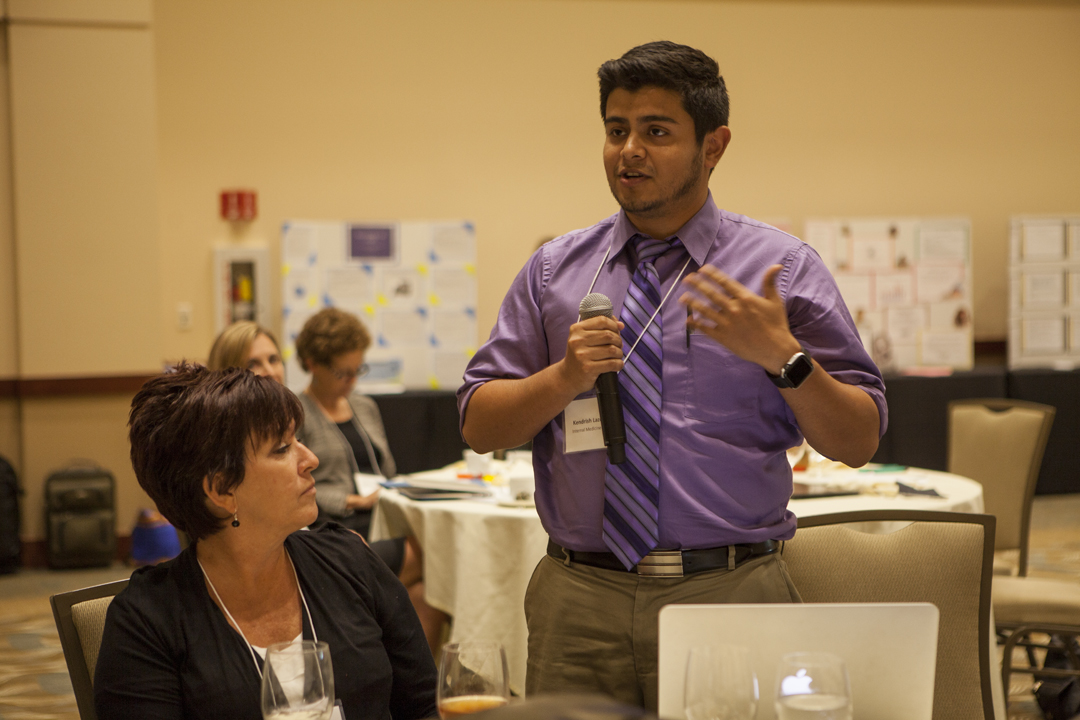
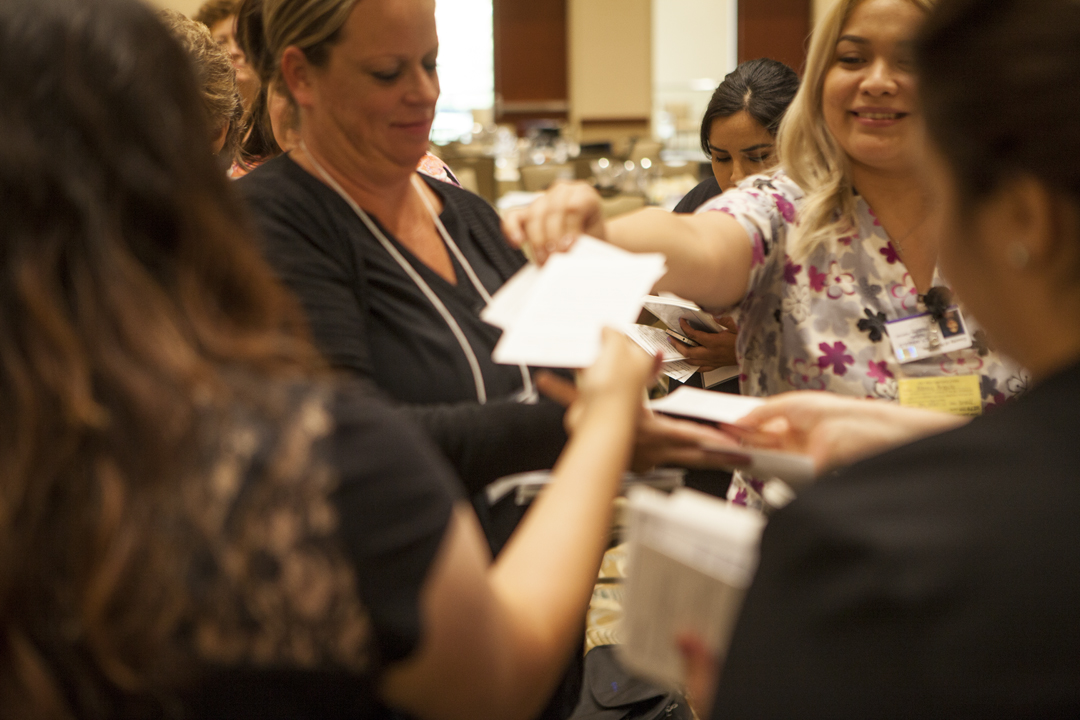
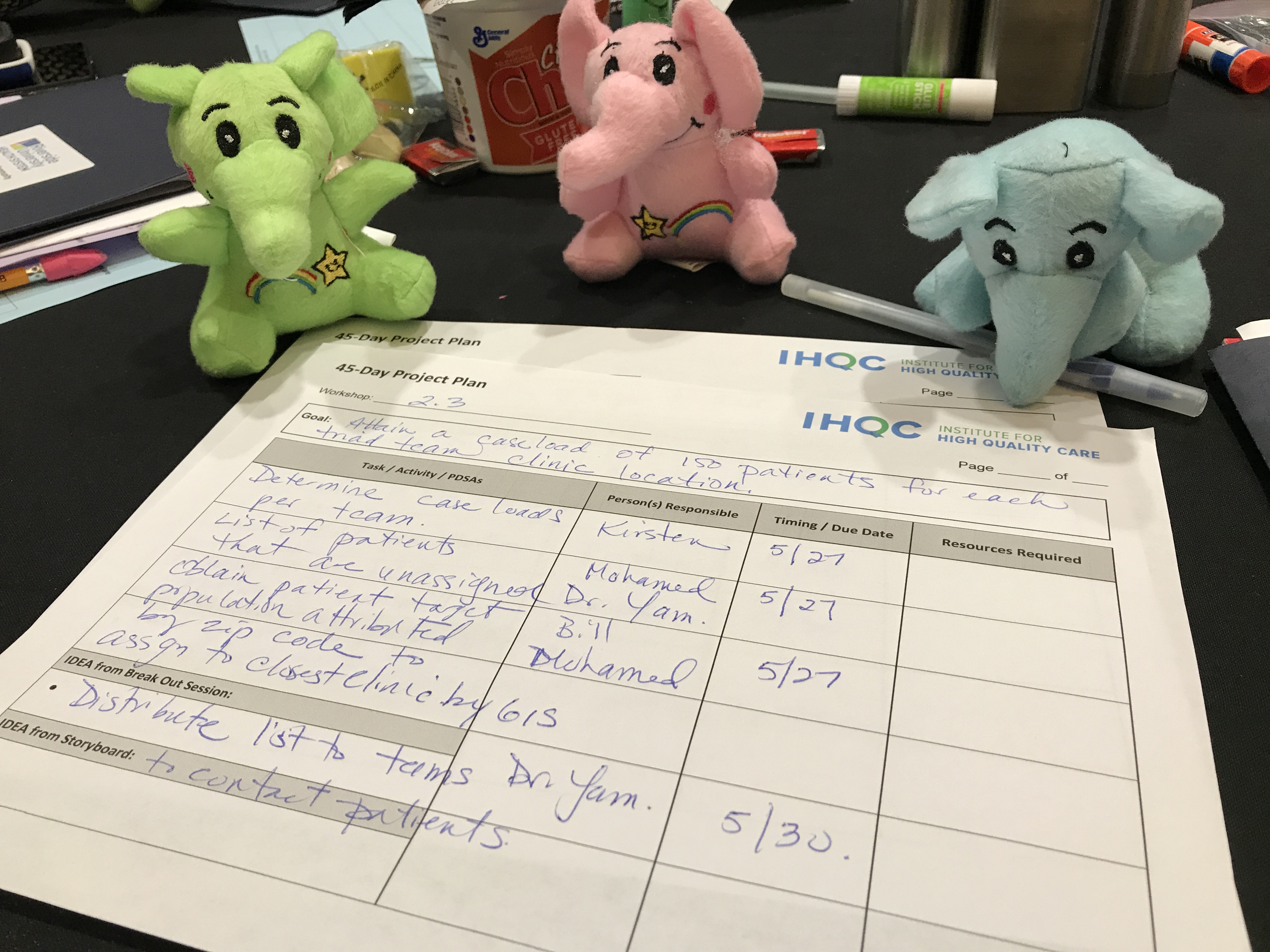
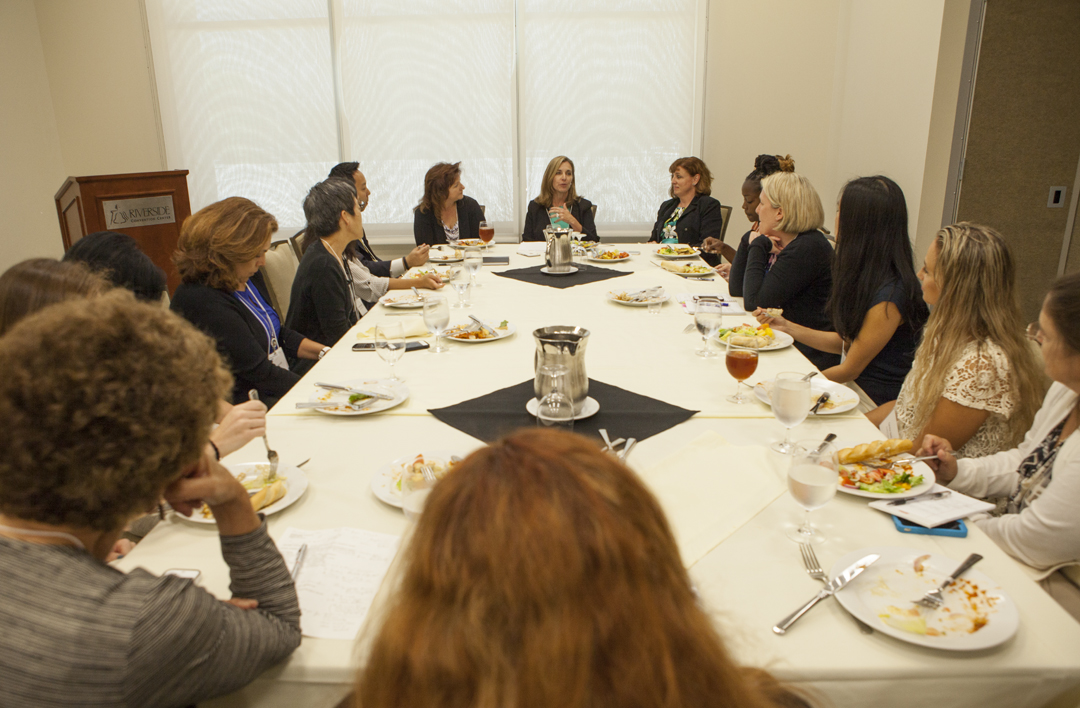
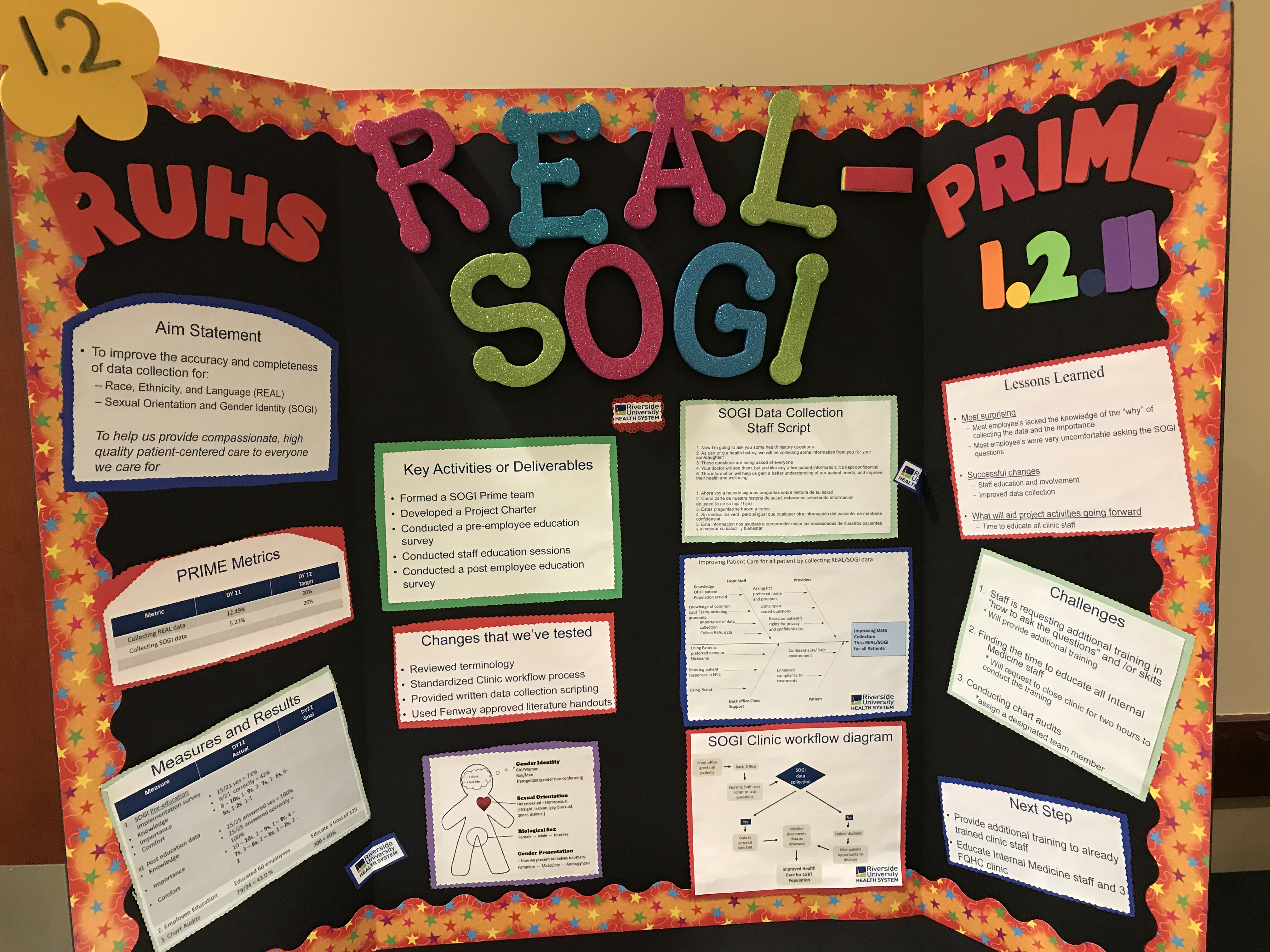

Implementing Quality Improvement for PRIME
In 2016, IHQC again partnered with RUHS, this time in an effort to build their health systems’ readiness for the Public Hospital Redesign and Incentives in Medi-Cal (PRIME) program. From 2016-2017, IHQC delivered its “Implementing Quality Improvement” learning community, providing training, tools and resources, and tailored coaching in support of 14 participating teams. At the final workshop, teams created poster presentations and networked with their colleagues across the county, exchanging forms, checklists, and protocols that were created during their initial PRIME program efforts.
RUHS showed strong improvements in multiple PRIME measures – such as colorectal cancer screening, blood pressure control, and medication reconciliation – at the midyear report in March 2017, which ultimately led to RUHS receiving notable incentive payments under the Medi-Cal waiver program. The work of these teams ultimately brought a total of $15.8 million to the hospital system.
In addition to QI content and coaching, IHQC supported the design and creation of a RUHS PRIME Steering Committee – a leadership decision-making body that provided guidance to the 14 PRIME program teams.
Case Study
One of the RUHS sites in this initiative chose to focus on improving the processes they had in place for registration and referrals for follow ups. The project was designed to accomplish several important goals, including improving emergency room throughput, improving access to financial planners, reducing emergency room walk-away rates, increasing emergency room revenue, and improving overall patient satisfaction. By utilizing the tools and techniques acquired throughout the BCCQ program, and with the support of the established learning community, the emergency room was able to attain a 20% improvement in registration rates of patients, an improvement in post-emergency room follow up clinic visits, and projected millions in estimated added annual revenue. Leadership at RUHS report that since participating in the BCCQ program, staff and providers feel a greater sense of ownership, responsibility, and pride in their work, and regularly reference the improvement work they have done with BCCQ. The program has been a morale booster that’s helped RUHS focus their efforts in a way that is much more effective and sustainable.
